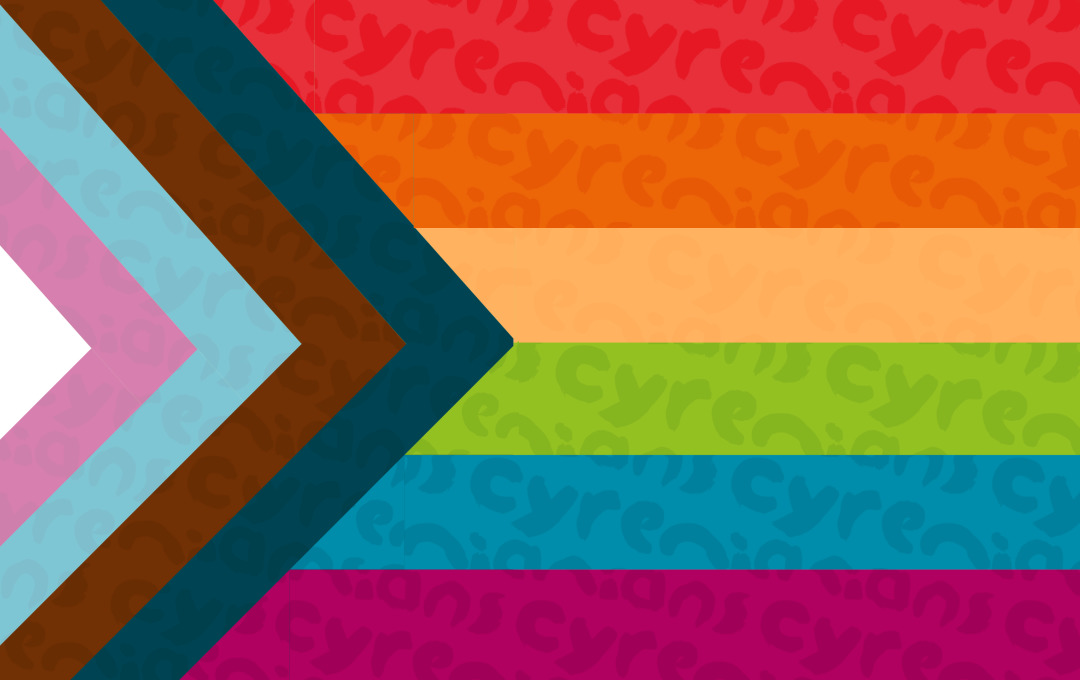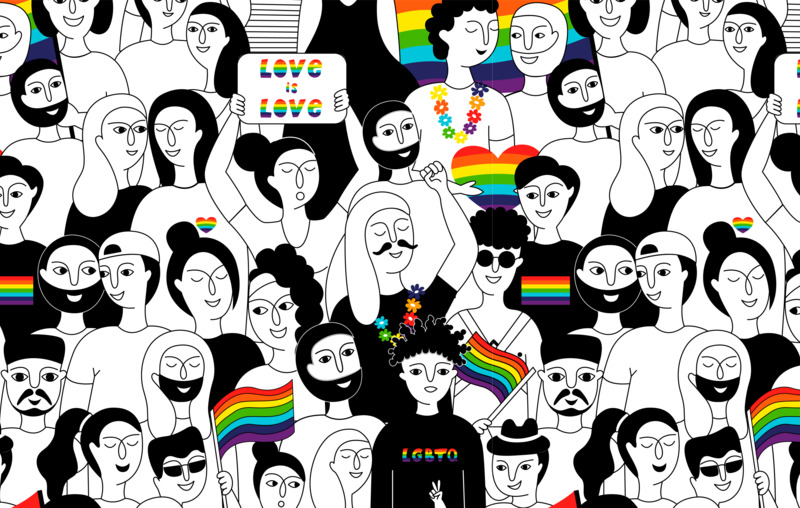Why are LGBTQ people less likely to seek support?

An estimated quarter of LGBTQ+ people in the UK experience homelessness - but often face exclusion or discrimination in seeking support. Clare McLaughlin, Family Outreach Worker at Cyrenians, explores how LGBTQ+ people are often excluded from the services we need, and what we can do to build inclusive support.
It’s difficult to seek support in crisis.
At Cyrenians, we often work with people whose trust has been badly broken – it takes time, relationship-building, and serious courage for people to feel safe asking for help, and taking that first step gets harder and harder the more negative experiences you’ve had.
My colleagues in our LGBTQ+ staff group have written before about the ways that homelessness is so common in the LGBTQ+ community that as many as 1 in 4 LGBTQ+ people have experienced it.
But the truth is, we don’t know how common it is, and we’re almost certainly underestimating – partly because the Scottish Government don’t collect data on LGBTQ+ identity in their homelessness statistics, but also because according to recent UK-wide surveys, more than half of LGBTQ+ people dealing with homelessness never seek formal support, and even fewer will approach local authority housing services. Those who do often feel a pressure to go back in the closet, hiding their LGBTQ+ identity from support workers.
"More than half of LGBTQ+ people dealing with homelessness never seek formal support"
There’s no one LGBTQ+ experience – as always, routes towards homelessness, poverty or family breakdown look different for everyone, and are caused by all sorts of things. But in a Scotland which is, despite huge steps forwards over the last few decades, still often shockingly hostile to LGBTQ+ people, it’s not surprising that LGBTQ+ people are way more likely to face homelessness, or that speaking to strangers about their experiences might not feel safe.
If you’ve been told for years that your sexuality or gender expression are shameful and wrong, how easy is it to trust a support worker enough to tell them that you’ve been kicked out of your parent’s house for it? If your relationships aren’t taken seriously, how easy is it to seek support when your partner is abusive or controlling? If you’ve been attacked for how you present, how can you trust that you’ll be offered accommodation where you’re safe?
However much we may want it to be, Scotland isn’t yet a place where LGBTQ+ people are treated equally. As a community, LGBTQ+ people are still more likely to deal with poverty, familial and domestic abuse, unemployment, social exclusion and homelessness.
Things have come a long way in my lifetime, and I hope that we’ll see things continue to change for the better. But while we as a community fight to improve the rates at which LGBTQ+ people face marginalisation, there’s also a lot of work that we as a sector need to do to make it safer for LGBTQ+ people to access the support they need.
In the homelessness and social support sector, we need to keep proactively asking the hard questions – what are we doing that might make people feel unable to talk to us? What do we do, without thinking, that’s unhelpful or even actively harmful to LGBTQ+ people seeking support? How do we make sure that LGBTQ+ people can put their trust in us – and how do we make sure we don’t betray that trust?
Since we began working with LGBT Youth Scotland in 2019 to gain our Charter Mark, we’ve been trying to ask those difficult questions, and make sure we’re constantly working to make our services a genuine source of safety, understanding and support for LGBTQ+ people. Our LGBTQ+ staff group works to keep the conversation alive in the organisation, helping develop understanding of LGBTQ+ identities and experiences across staff and volunteers, and making sure we don’t forget how important this continues to be.
And we want to hear from people in our community. If you’re an LGBTQ+ person living locally, especially if you’ve had difficult times in your life, we want to know whether you’d feel safe reaching out for support from services like ours – and if not, what we could do to change that.
Everyone deserves to feel safe, cared for and accepted when they’re asking for support. It’s hard enough to ask for help, without having to face extra barriers because of your sexuality or gender – we're going to keep working to build inclusive, accepting services where people know they can put their trust.
